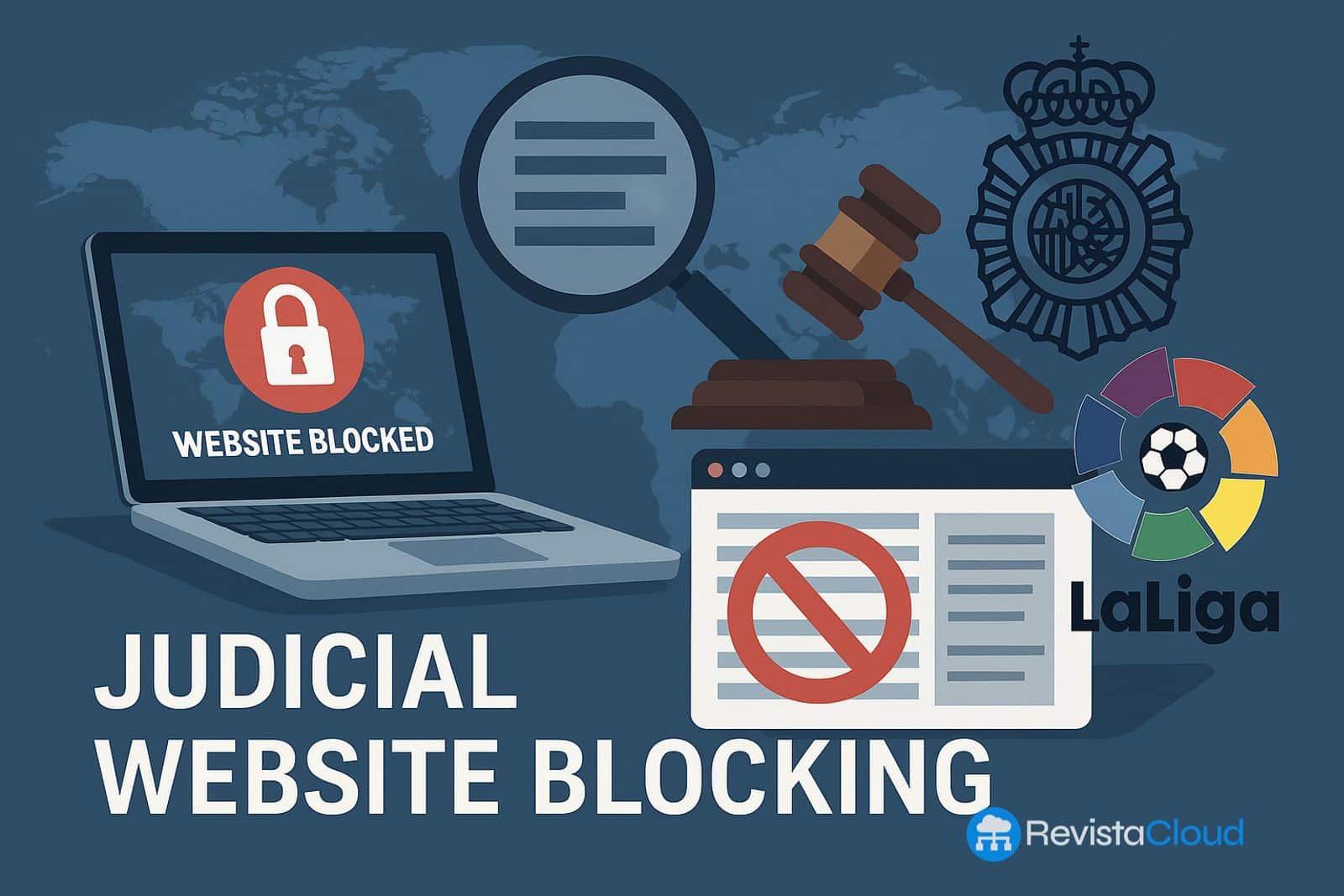Sure! Here’s the translation:
—
The tech community reacts to the ruling that allows LALIGA and Telefónica to block IP addresses without transparency or effective oversight.
The debate over internet access control has erupted in Spain. The organization RootedCON, a reference in the field of cybersecurity, has announced the filing of a constitutional appeal against the ruling that permits LALIGA and Telefónica to block IP addresses under the pretext of combating audiovisual piracy.
For RootedCON, this ruling, recently upheld by the Commercial Court No. 6 of Barcelona, poses a severe threat to d digital freedoms and the technical architecture of the internet in Spain. In a statement, the organization denounces the “lack of proportionality and guarantees” in the process and warns of the precedent it may set for other sectors beyond football.
Internet at risk of controlled fragmentation
The controversy revolves around the massive blocks applied during each football match to prevent access to illegal broadcasts. However, according to RootedCON and numerous affected parties, these measures impact tens of thousands of legitimate websites and services, including payment platforms like Redsys, company pages, gaming services, social media, and even administrative tools.
“We are witnessing a model of technical censorship without public debate or effective oversight, with real economic and rights consequences,” warn representatives from RootedCON, which has 15 years of experience as a leading platform in critical thinking and cybersecurity training.
BNG member of parliament, Néstor Rego, has reinforced this position by raising a formal request to Congress to stop what he considers a abusive practice that violates fundamental rights such as access to information and freedom of enterprise. “A judicial authorization cannot become a blank check for private companies to execute indiscriminate blocks with massive collateral damage,” he states.
LALIGA’s position: “No proven harm”
LALIGA’s response has been immediate and firm. In statements sent to the media, the organization emphasizes that it “complies with legal regulations” and that the court ruling upheld the legality of the process and dismissed any infringement of fundamental rights, as well as the existence of proven direct harm.
“The procedure is legal, protected by intellectual property and digital services regulations, and the court ruling was clear: the applicants did not prove any damage nor do they have the legitimacy to represent the rights they claim,” the statement reads.
Additionally, LALIGA reminds that its aim is to protect the audiovisual ecosystem and ensure the sustainability of competition, clubs, and the entertainment industry, which are severely harmed by piracy.
From piracy to internet control: where is the limit?
The RootedCON vs. LALIGA case goes far beyond football. It represents one of the most significant conflicts in the intersection of intellectual property, net neutrality, and digital rights. The ability of private companies to influence, without sufficient oversight, access to online services and content raises serious questions about the governance model of the internet in Spain.
In this context, the role of the Constitutional Court will be decisive. If the constitutional appeal is admitted, it could set crucial jurisprudence on the balance between protecting commercial rights and respecting fundamental freedoms in the digital realm.
Meanwhile, each football match day becomes a legal experiment with unpredictable consequences for the digital ecosystem. The outcome of the match is still in play.

